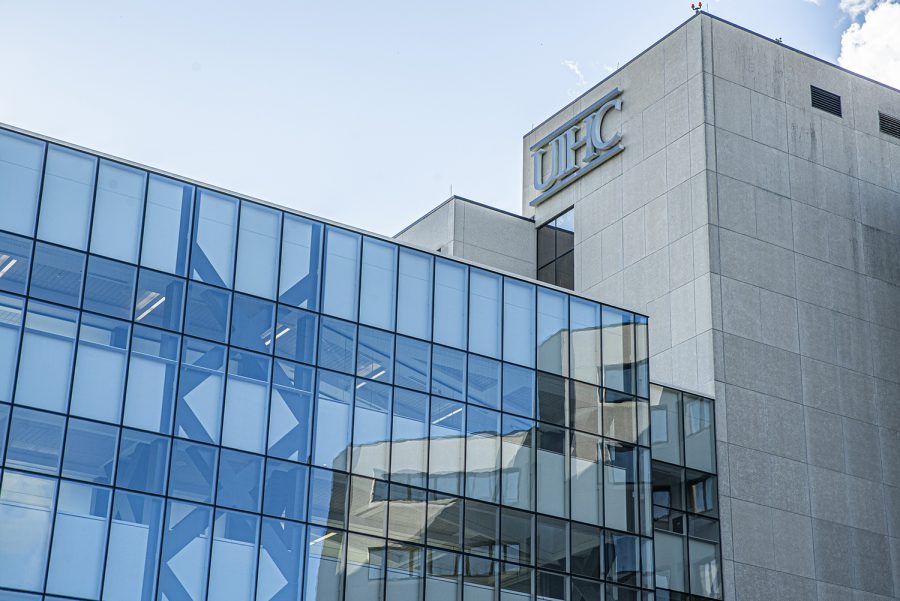UI Office of the Vice President for Research postpones in-person research
The office announced Wednesday that it plans to postpone non-essential in-person research that requires human subjects to enter University of Iowa Hospitals and Clinics. This comes days after Gov. Kim Reynolds announced a mask mandate in Iowa.
University of Iowa Hospitals and Clinics are seen on Tuesday, June 23, 2020.
November 18, 2020
The University of Iowa Office of the Vice President for Research announced on Wednesday that it will be postponing non-essential in-person research visits in UI Hospitals and Clinics until further notice.
This decision was in response to Iowa Gov. Kim Reynolds’ proclamation on Monday, which requires people to wear masks when they are in groups of 15 or more people indoors and 30 or more outdoors.
The statement said the UI Office of the VP for Research plans to postpone events that aren’t essential to a participant’s health or well-being.
The office also provided a list of research that may continue, including visits that coincide with standard of care medical appointments, COVID-19 research, visits that are critical for safety follow-up, research conducted remotely, when research personnel are available to ensure subject safety, and IRB-approved study activities.
Associate Vice President for the UI Office of the Vice President of Research Jennifer Lassner in an email with The Daily Iowan wrote the office doesn’t know how many projects will be affected by this decision.
As students prepare for graduation, some need to meet research requirements. Lassner said it’s up to the researchers to determine whether students can continue to work under these guidelines, but the office is working to make sure students can conduct their research while being safe. She said many students can work remotely, so this decision won’t affect them.
“We’re confident that researchers and mentors will do all they can to ensure students meet their academic requirements,” Lassner wrote. “But at the moment, protecting the health and safety of everyone on campus and throughout our community is a top priority.”
Lassner said faculty, staff, students, and administrators have been flexible while trying to figure out how best to conduct this research during the pandemic.



